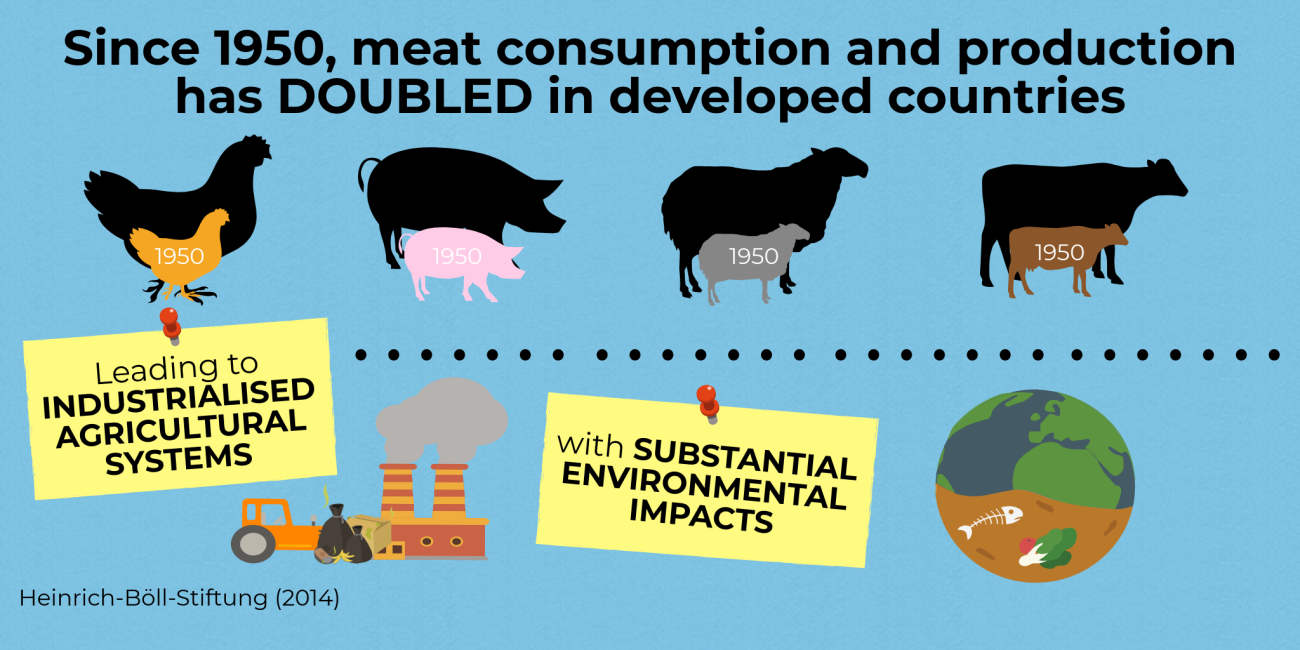Healthcare facilities have an important role to play in creating healthier and sustainable food systems that can guarantee environmental stewardship, maintenance of local economies, animal welfare, and protection of health and wellbeing for all citizens.

Reducing food waste along with the provision of more plant-based diets has been highlighted in the recent IPCC 1.5ºC report as a way to minimise the negative environmental effects of our food system. Livestock alone is responsible for approximately 14.5% of all anthropomorphic greenhouse gas (GHG) emissions and accounts for 70% of global agricultural land. Whilst plant-based proteins, such as pulses, not only have health benefits, they are also recognised as “soil building crops” thanks to their proprties to improve soil structure, reduce erosion, and increase organic content.
Our new infographic also visualises some of the negative impacts associated with meat consumption as well as the benefits of plant-based diets, and how the healthcare sector can help promote healthy and sustainable food.

This new brochure also provides actions for policy-makers and healthcare professionals committed to building a healthier, low-carbon society through the promotion of plant-based diets in their organisations. We have also highlighted some case studies from Austria, Norway, the Netherlands, and United Kingdom that can inspire and encourage others to follow suit.
Changing the way patients, staff, and communities eat is a powerful first step towards creating a more healthy and sustainable healthcare sector.
